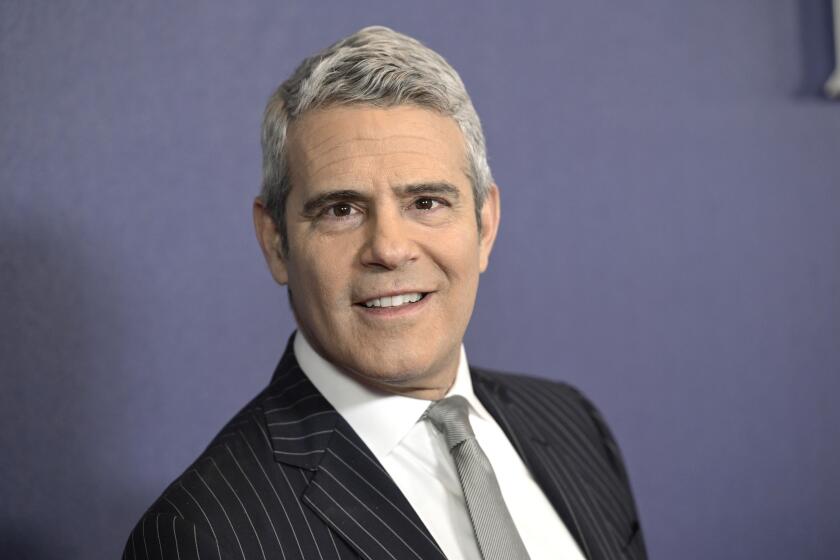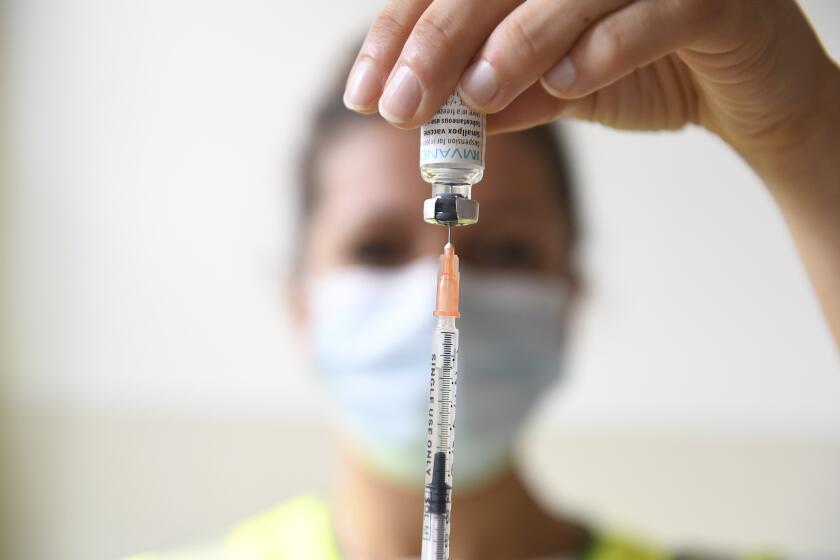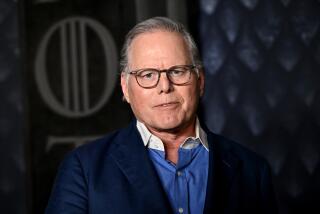John Oliver slams Warner Bros. over ‘Batgirl’ cancellation while explaining monkeypox

- Share via
John Oliver managed to weave a pointed dig at his employer, Warner Bros. Discovery, into the latest episode of “Last Week Tonight,” which focused on the spread of the monkeypox virus.
While setting the record straight about the monkeypox outbreak, Oliver took a moment Sunday to address Warner Bros.’ controversial decision to scrap “Batgirl” before the superhero movie had a chance to debut on HBO Max. Warner Bros. Discovery oversees all things Warner Bros., HBO and HBO Max — including the DC extended film universe and “Last Week Tonight.”
“We let 20 million doses [of the monkeypox vaccine] expire,” Oliver said. “We just did that — which seems especially unconscionable given ... multiple African countries have had outbreaks of monkeypox for decades now and might have appreciated a shot or two.
“Sharing vaccines would have served two purposes: basic human decency, but also abject selfishness in that stopping outbreaks over there might well have prevented the current outbreak over here.”
Leslie Grace was set to star in ‘Batgirl,’ the straight-to-HBO Max movie from Warner Bros. After it was canceled, she’s speaking out.
Next came Oliver’s not-so-subtle swipe at Warner Bros. Discovery, which — under new leadership — has been quietly scrubbing original content from HBO Max after abandoning plans to release “Batgirl” on the streaming platform. By the time the studio giant killed the high-profile project, starring Leslie Grace in the titular role, “Batgirl” had already cost $90 million to make.
“For some reason, we let the vaccines sit unused on a shelf in our reserves, like an expired Chobani [yogurt] or a $90-million movie on HBO Max,” Oliver quipped.
“By the way: Hi there, new business daddy! Seems like you’re doing a really great job. I do get the vague sense that you’re burning down my network for the insurance money, but I’m sure that that will pass.”
“Gordita Chronicles” canceled. “Batgirl” killed off before she even appeared. This is not what progress looks like.
Elsewhere in his segment about the monkeypox outbreak — which the TV host compared to former “Glee” star Lea Michelle’s recent comeback (“an unpleasant surprise” that has been “getting more and more urgent over the past two months”) — Oliver debunked myths about the virus that have the potential to cause further harm.
“Sadly, as with COVID, there is a lot of misinformation flying around right now online,” Oliver said.
“There are theories like monkeypox can be caused by the COVID vaccine — which it can’t — and that it escaped from a lab — which it didn’t. It seems a spreading virus, yet again, is bringing out the worst in people, including targeting those suspected of carrying it.”
After briefly outlining the origins of the monkeypox virus, what the symptoms are and how the illness spreads, Oliver partially blamed the government’s botched rollout of monkeypox treatments and vaccines on systemic homophobia.
The gay community is “already under attack from many who’d rather use us as a scapegoat than help us,” Andy Cohen said of the monkeypox outbreak.
While monkeypox has been largely spreading among men who have sex with men as well as transgender and nonbinary people, health officials warn that anyone can contract the virus through direct contact with infectious sores, scabs or body fluids, as well as by touching clothing or bedding used by someone with the disease.
“You have to believe that if monkeypox was spreading largely through heterosexual sex, things would be drastically different,” Oliver said. “By now, we’d probably be able to get a free vaccine with purchase at every J.Crew in the country.
“It is not homophobic to acknowledge who is currently most affected,” he continued. “What is homophobic is when you blame or shame the people who are suffering or when you decide you don’t need to care about this because you don’t see their lives as valuable or their suffering as consequential. And that is where there are strong echoes of the AIDS crisis in some of the discussion around monkeypox.”
As monkeypox cases across California and the U.S. continue to rise, experts address some of the concerns and questions swirling about virus, and what activities people should consider risky, or not.
At the end of the installment, Oliver positioned the monkeypox emergency as a microcosm of larger societal issues, such as homophobia, racism and flaws in the United States public health system.
“Even if we do contain this outbreak and ... build up our public-health infrastructure, there is a bigger conversation we’re having here because, for far too long, we’ve indulged in the magical thinking that viruses that exist somewhere else A. don’t matter and B. will stay there. And monkeypox is such a clear example of how flawed and racist that thinking is,” Oliver said.
“But, to be fair, indifference to those suffering from pox viruses has been the story of America from Day One. ... I know fixing all of this may feel daunting, but we are living through the alternative right now, and it’s not great.”
More to Read
The complete guide to home viewing
Get Screen Gab for everything about the TV shows and streaming movies everyone’s talking about.
You may occasionally receive promotional content from the Los Angeles Times.











